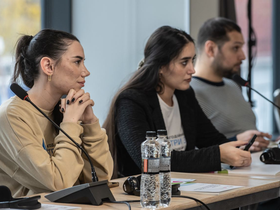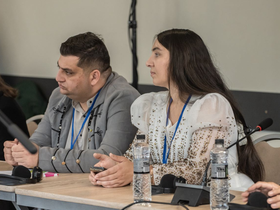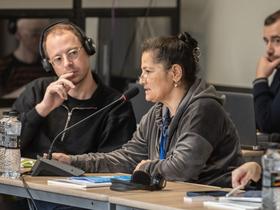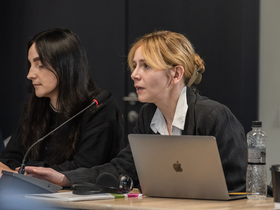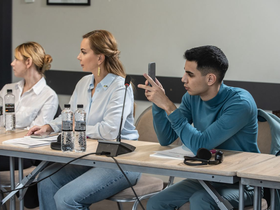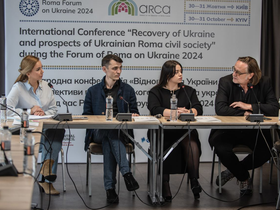A networking meeting between civil society participants
Within the Third Romani Forum in Kyiv, there took place a meeting between representatives of Romani NGOs and international partners. A round table meeting was attended by over 15 representatives of Romani NGOs who exchanged experience, discussed matters, and outlined paths toward partnership aimed at defending the rights and well-being of Romani communities in Ukraine and abroad. Participants of this meeting stressed, among other things, the matters of collaboration between civil sector and state authorities, as well as matters of financial support to be provided to Romani NGOs.
«We face challenges in terms of funding and prospects of our activity. The team is under a lot of stress. Romani NGOs need long-term assistance. It is very important for us that new donors and partners provide us with long-term projects—lasting, say, two to five years», – noted Nataliia Tomenko, deputy director of ARСA Youth Agency for Advocacy of Romani Culture.
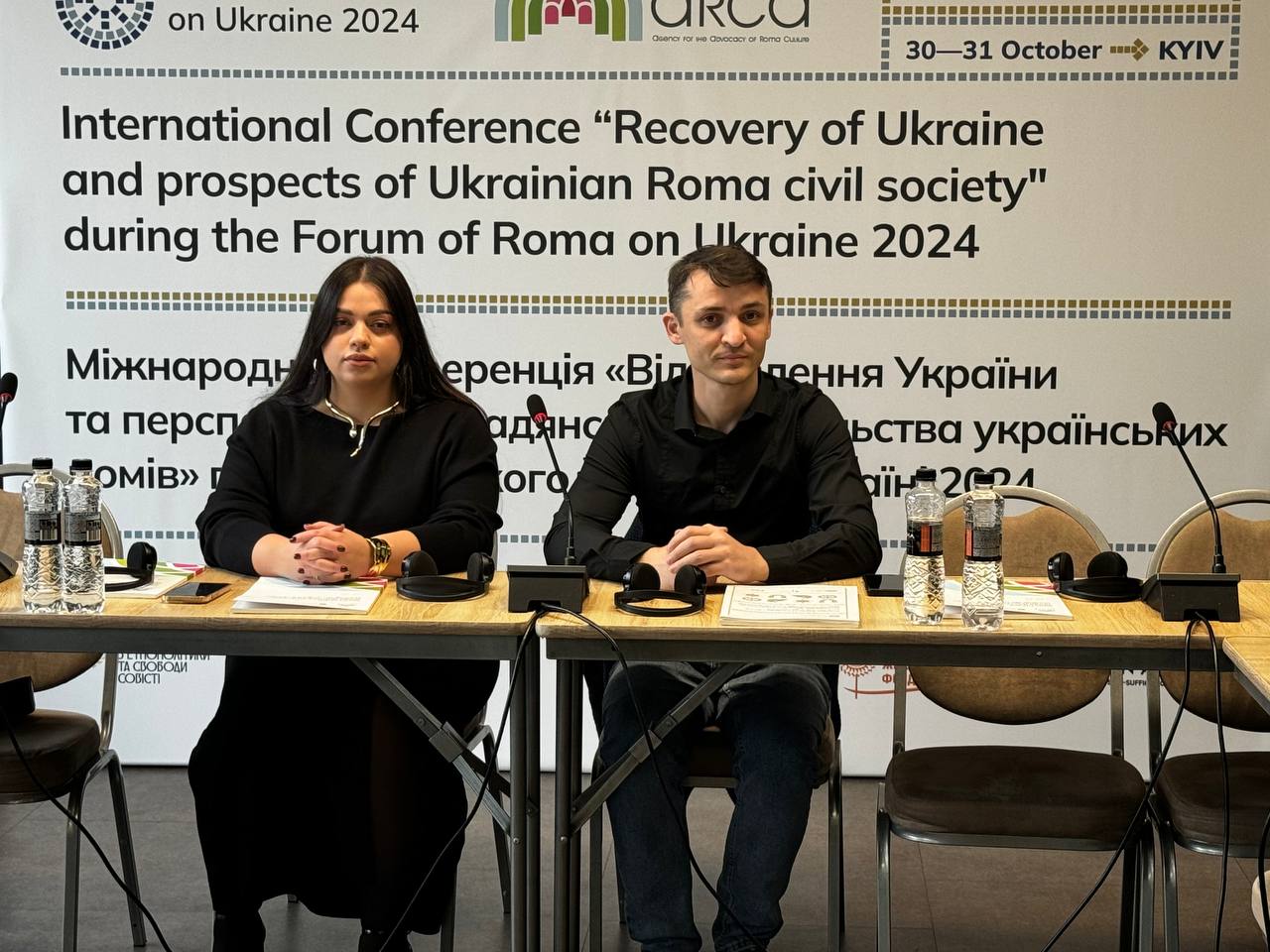
In order to reach these joint targets, we need NGOs and state sector (state authorities) to join their efforts. This is something Volodymyr Yakovenko, Executive Director of ARKA Youth Agency for Romani Culture Advocacy, absolutely believes.
«There are a lot of problems. Romani NGOs find ways to resolve these problems locally. That said, since funding is quite limited, so is their activity. Global changes require a systemic approach. These are not issues of Romani civil society only. This is a problem of Ukrainian society, by and large», – stresses Volodymyr Yakovenko.
Stefan Müller, Political Advisor to the Central Council of German Roma and Sinti People, shared the experience of Germany as far as collaboration between the authorities and the Romani civil sector was concerned. He described the existing co-operation with Romani organisations.
«We try to create corresponding structures which would focus on these issues. This is the German approach. We collaborate with the German Parliament—specifically, with the Parliamentary Committee for Sinti and Roma Matters. We need to have a structure of some kind; this is an important step to establish co-operation with the authorities and to resolve issues faced by the Romani Community», – said Stefan Müller.
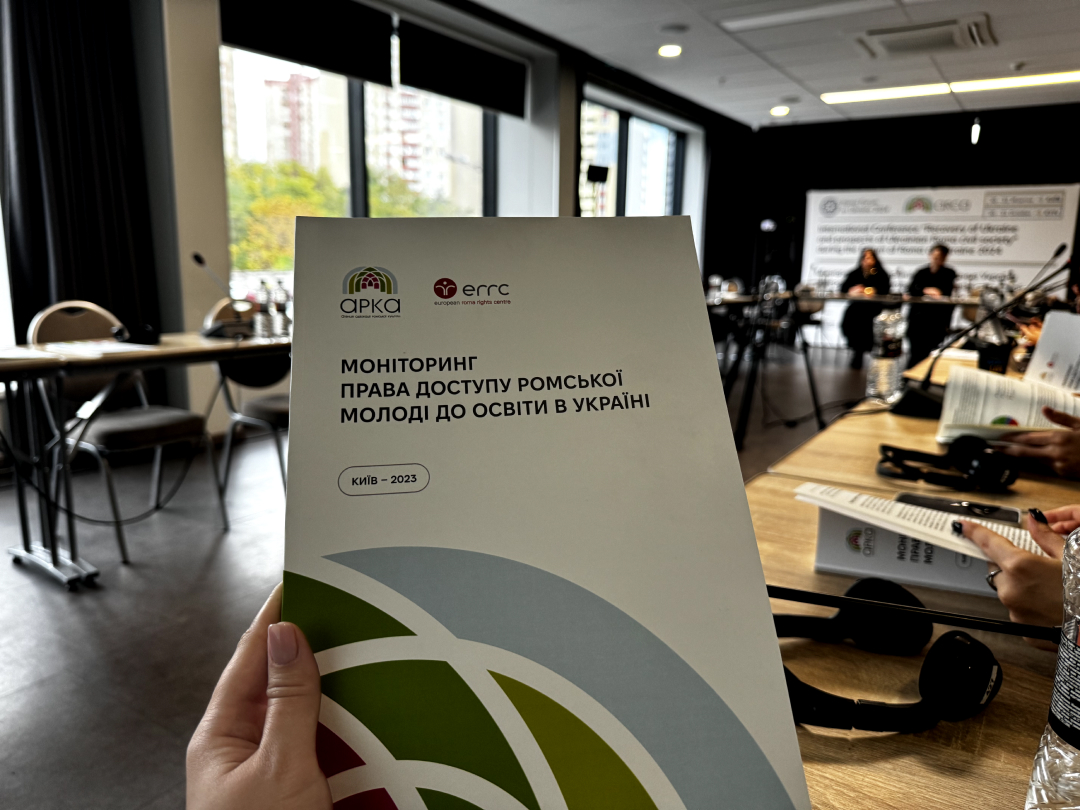
Participants were also presented with the results of Monitoring Report on Romani youth's right to access education. The said Report covers the matters of attitude of the Romani community to education; hardships and challenges which the Romani children and parents face in the course of their studies. The key conclusion of this monitoring report was as follows: that Romani families are aware of how important it is for their children to receive education and that they have no prejudice regarding who should study and who shouldn't (boys as well as girls). There aspirations are, however, impacted by a range of negative factors: the financial/material situation, bias from the authorities and school environment, the fact that parents and grandparents have had no prior education—and are thus unable to help their kids and grandkids with homework.
Another important document presented by ARСA representatives is the Position Paper following the results of the Conference. It contains recommendations for the Ukrainian authorities and international partners which will allow to improve the condition of Romanis. One particular step which needs to be taken is the adaptation of the Romani strategy to the conditions of war, its full compliance with the EU programme, as well as the importance of Romani inclusion in the processes of restoration of Ukraine.
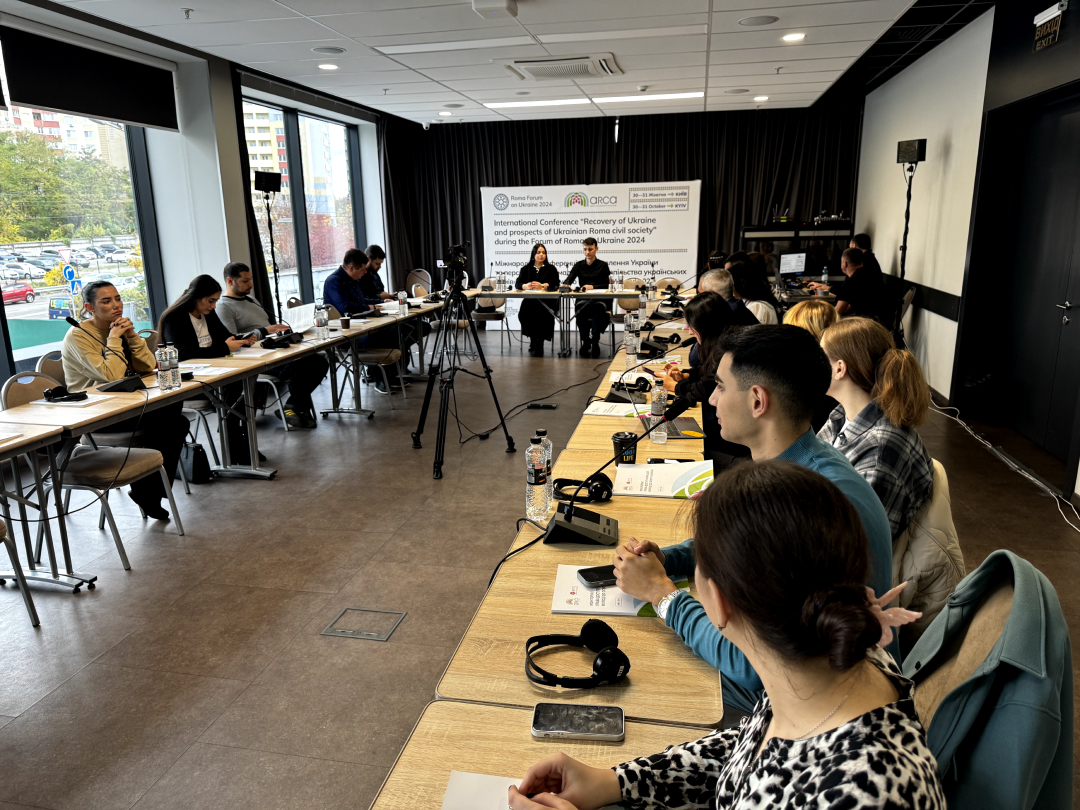
See also
- АРКА візьме участь у Cafe Kyiv 2026
- Roma Women’s Testimony from Ukraine at the United Nations Holocaust Memorial Ceremony
- Roma rights and the challenges of war: results of a discussion in Berlin
- Roma Inclusion in Focus – Strengthening Partnerships Between Ukraine and Germany
- The film “Named Voices” was presented at an international conference
- ARСA representative participates in OSCE conference on human rights
- Babyn Yar: And the Thousands of Ravines of Memory. How We Reflect on the Past During Wartime
- Voices of Memory and Future: ARCA’s Participation in the 5-Year Anniversary of the Program
- ARCA Representatives Hold Lecture at the MFA to Mark Roma Genocide Remembrance Day
- Roma Programme Featured at One of Europe’s Largest Conferences
- In New York City, the 69th session of the UN Commission on the Status of Women is underway
- A screening of a movie about the Roma Genocide took place in Berlin
- Michael Roth: “Roma are the largest ethnic community. And its contribution should be recognized”
- Humanitarian Aid, Human Rights, Equality: Challenges faced by the Roma Community
- Participation in the panel discussion “Challenges Faced by Ukrainian Roma in the Ukraine”
- Attitude towards minorities is an important indicator of Ukraine's readiness to accede to the EU
- We are already planning the restoration of Ukraine: an international conference has begun
- Participation in DEZIM CONFERENCE 2024
- The Art of Memory: How the Romani Tragedy Resurrects from Oblivion
- The Forum dedicated to the 140th Anniversary of the Female Movement in Ukraine
- "Romanis must be included in the processes of Ukraine’s Reconstruction", – Volodymyr Yakovenko
- The event "Roma contribution to the Recovery of Ukraine"
- The Council of Europe Dialogue with Roma and Traveler civil society
- Conference on Ukraine's recovery in Berlin
- Educational event "Roma in Ukraine - fighters for democracy, human rights and justice" was held
- Ukrainian Decolonization: the Untold Roma Stories
- Public event "Roma in Ukraine – Fighters for Democracy, Human Rights and Justice"
- Mapping the Challenges faced by Ukrainian Roma in a War Time and Overcoming the Obstacles
- Cafe Kyiv event took place in Berlin
- Respect, Recognition and Rights of National Minorities in Ukraine
- Consultation meeting on opportunities for Roma youth realization
- Meeting with a member of the Bundestag
- Conference “Roma as an integral part of Ukrainian society”
- Forum of Roma civil society
- "The Russian War Against Ukraine and Its Consequences for Roma" conference
- First day of Roma Civil Society Forum
- The Sastipe project
- The project Through my mind
- DIKH HE NA BISTER - Roma Genocide Remembrance Initiative
